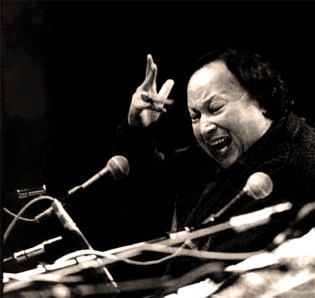Ein Zitat von Michael Korda
Ich bin ein erstaunlich schneller Leser und war es schon immer. Ich kann in mindestens drei Sprachen fließend und in zwei Sprachen mit etwas mehr Schwierigkeiten lesen.
Verwandte Zitate
Ich kann mehr Sprachen lesen als ich spreche! Ich spreche Französisch und Italienisch – leider nicht sehr gut, aber ich komme zurecht. Ich lese Deutsch und Spanisch. Ich kann Latein lesen (ich habe in der Schule viel Latein gelernt). Ich fürchte, ich spreche keine afrikanischen Sprachen, obwohl ich ein wenig von den Zulu-bezogenen Sprachen verstehen kann, aber nur ein kleines bisschen.
Ich arbeite auf Hebräisch. Hebräisch ist stark von anderen Sprachen inspiriert. Nicht jetzt, in den letzten dreitausend Jahren wurde das Hebräische von alten semitischen Sprachen durchdrungen und befruchtet – vom Aramäischen, vom Griechischen, vom Lateinischen, vom Arabischen, vom Jiddischen, vom Latino, vom Deutschen, vom Russischen, vom Englischen, ich könnte weiter und weiter machen. Es ist dem Englischen sehr ähnlich. Die englische Sprache übernahm viele, viele Befruchtungen, viele, viele Gene aus anderen Sprachen, aus Fremdsprachen – Latein, Französisch, nordische Sprachen, Deutsch, skandinavische Sprachen. Jede Sprache hat Einflüsse und ist ein Einfluss.
Der Hauptgrund, warum ich mich für ein Studium der lateinamerikanischen Literatur entschieden habe, war, dass mir die amerikanische Belletristik, die ich las, etwas langweilig geworden war. Ich fühle mich nicht zu einem bestimmten Stil oder einer bestimmten Ästhetik hingezogen. Wenn ich an Literatur denke, denke ich daran in den drei Sprachen, die ich leicht lese: Englisch, Spanisch und Portugiesisch. Die Autoren, die ich bevorzuge, sind alle sehr unterschiedlich und nicht auf bestimmte Genres oder gar bestimmte Zeiträume beschränkt. Das Lesen in drei Sprachen ist für mich eine Möglichkeit, meine Leserschaft zu diversifizieren und mich nicht in bestimmte Kategorien oder Bevölkerungsgruppen einzuschleichen.
Das Schreiben in afrikanischen Sprachen wurde zu einem Diskussionsthema auf Konferenzen, in Schulen und im Klassenzimmer; Das Thema wird immer wieder thematisiert, es liegt also nicht mehr sozusagen „im Verborgenen“. Es ist Teil der Diskussion über die Zukunft der afrikanischen Literatur. Die gleichen Fragen gibt es in den Sprachen der amerikanischen Ureinwohner, sie gibt es in den einheimischen Sprachen Kanadas, es gibt sie in einigen marginalisierten europäischen Sprachen, wie zum Beispiel Irisch. Was ich also für ein afrikanisches Problem oder Problem hielt, ist in Wirklichkeit ein globales Phänomen über Machtverhältnisse zwischen Sprachen und Kulturen.
Es ist sehr schwierig, zwei Sprachen vertraut und ohne die eine durch die andere zu verunreinigen; und die Verwendung von mehr als zwei ist kaum zu hoffen. Die Auszeichnungen, die einige für ihre Sprachenvielfalt erhalten haben, reichen vielleicht aus, um die Industrie zu begeistern, können aber kaum Vertrauen schaffen.
Die Vorteile, eine Fremdsprache fließend zu beherrschen, werden ebenso unterschätzt wie die Schwierigkeit überschätzt. Tausende theoretische Linguisten werden anderer Meinung sein, aber ich weiß aus Forschung und persönlichen Experimenten mit mehr als einem Dutzend Sprachen, dass (1) Erwachsene Sprachen viel schneller lernen können als Kinder, wenn die ständige Arbeit von 9 bis 17 Uhr entfällt, und dass (2) dies möglich ist In höchstens sechs Monaten fließende Konversationskenntnisse in jeder Sprache erlangen. Bei vier Stunden pro Tag können sechs Monate auf weniger als drei Monate verkürzt werden.






































